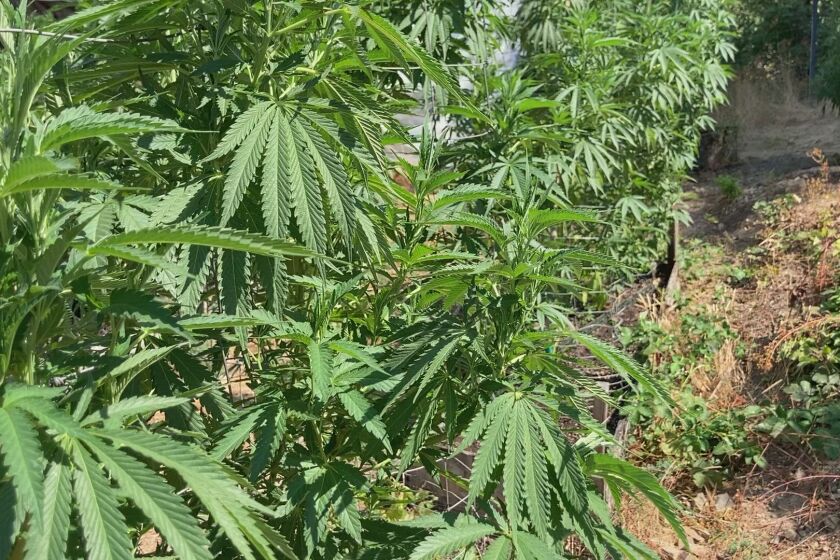After Times investigation, law passed to force California to clear pot convictions faster
Los Angeles Times | Sept 22, 2022 | By Kiera Feldman

California has new deadlines to dismiss and seal many cannabis convictions under a law signed this week by Gov. Gavin Newsom.
The move comes after a Times investigation found that tens of thousands of Californians still have felonies, misdemeanors and other cannabis convictions on their records. Despite a 2018 law that required the state to clear cannabis convictions, many counties have moved at glacial speeds. Some superior courts haven’t fully processed a single case, The Times found.
“It is unimaginable and unacceptable that years after we legalized cannabis, Californians are still waiting to get their records cleared,” the bill’s author, Assemblymember Mia Bonta (D-Alameda), said in a statement. “We have a moral obligation to get this right.”
The new law gives the courts a deadline of March 1 to update case records and transmit them to the state Department of Justice, which maintains California’s criminal history database and responds to background checks. The state DOJ must modify its records by July 1.
The change will fix “implementation gaps” of the 2018 law, Bonta said. The Times investigation found that at least 34,000 marijuana records have not been fully processed by the courts.
State lawmakers voted unanimously for the legislation, citing The Times investigation in analyses earlier this year.
The bill’s sponsor is the Last Prisoner Project, which advocates for cannabis criminal justice reform nationwide. In a statement, the group’s state policy director, Gracie Burger, said the law represents “accountability for the racist origins of cannabis prohibition.”
“Californians who would not be guilty of any crime today still suffer the weight of old marijuana convictions,” Los Angeles County Deputy Public Defender Nick Stewart-Oaten said in a statement.
“We applaud the Legislature and governor for taking immediate action to give these men and women back their lives,” said Stewart-Oaten, a board member of the California Public Defenders Assn.
Kate Weaver Patterson, the deputy director of national programs at Root & Rebound in Oakland, also commended the passage of the legislation.
California’s legalization of recreational cannabis in 2016 ushered in a multibillion-dollar industry estimated to be the largest legal weed market in the world. But many of the promises of legalization have proved elusive. In a series of occasional stories, we’ll explore the fallout of legal pot in California.Read the stories
“Thousands of Californians have borne the brunt of a criminal record for longer than they should, which impacts their livelihood in deep and long-lasting ways, in areas like housing, employment and family stability,” Weaver Patterson said in a statement.
Court officials blamed a combination of factors for delays, including COVID-19, staffing shortages, outdated case management systems, old records that require manual review and technical issues.
The delays are not, however, for a lack of funding, The Times reported. The courts received $16.83 million in state funds for processing records.
When California voters legalized cannabis for recreational use in 2016, one promise was the creation of a legal pathway through the courts for clearing many old marijuana-related convictions or reducing them to a lesser charge.
It was a step championed by reform advocates, meant to right many of the injustices inflicted by the nation’s war on drugs that was disproportionately waged on poor people and communities of color.
The 2018 law, AB1793, was supposed to clear past cannabis convictions en masse, doing away with the need to file individual court petitions — an onerous process that few Californians undertook, whether for lack of resources or awareness it was an option. The burden was placed on the state to automate the process of identifying eligible cases, updating records and dismissing and sealing many of them so they do not appear on background checks.
The law was the first in the nation to offer automatic record clearance for marijuana convictions.
The delays in clearing drug charges can have dire consequences for those seeking employment, professional licensing, housing, loans and other instances in which background checks are required.

Under the new law, the state DOJ and the Judicial Council, which oversees the superior courts, will be tasked with collecting data on cannabis record clearance statewide and issuing regular public reports. The state DOJ also will lead a public awareness campaign so people will know their records have been updated and they no longer have to disclose convictions.
California has “fallen short of [the] promise” of Proposition 64, Bonta said. The new law will “guarantee individuals are not denied opportunities to succeed in life because of minor cannabis records.”
MORE POSTS
Root & Rebound Receives $2 Million Gift From the Yield...
Some Californians released from prison will receive $2,400 under new...
AB 1148: Stable Parents, Stable Children Act Signed Into Law

Sign Up
Join our mailing list.

